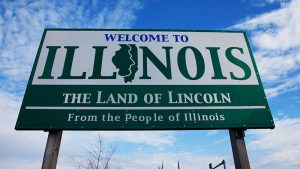State and local governments are moving quickly from artificial intelligence (AI) experimentation to production use, and that shift is forcing a new kind of security posture – one that can keep up with constantly changing models, data pipelines, and cloud services.
Arizona’s public employees can receive training on artificial intelligence (AI) and data analytics under a new statewide initiative launched by Arizona State University (ASU) and the state of Arizona.
Forty bicameral Democrats alerted state governors on Wednesday to a data-sharing policy that allows Immigration and Customs Enforcement (ICE) officers access to resident records.
The University of North Carolina (UNC) at Chapel Hill plans to create a new academic school consolidating the School of Information and Library Science (SILS) and the School of Data Science and Society to strengthen the university’s role in applied technology, information, and data science teaching and research.
The city of San Jose, Calif., has launched its first-ever Citywide Data Strategy with the goal of providing quality, equitable services for all residents and businesses through data-driven solutions.
The Chicago Office of the Mayor and the City of Chicago’s Office of Budget and Management (OBM) have launched the Workforce Vacancy Data Dashboard on OBM’s website. The new interactive tool provides an accessible, user-friendly way to explore and filter vacancy data across all city departments.
California has launched a new online accountability tool that brings together thousands of locally reported data points to provide a more accurate picture of how local communities are tackling some of California’s most pressing issues – including homelessness, housing, and behavioral health.
The Texas Health and Human Services Commission (HHSC) has dismissed a number of employees after it learned in November that agency employees may have improperly accessed account information and personal identifying information of at least 61,000 individuals.
The Illinois Department of Transportation (IDOT) has kicked off the installation process for the Continuously Operating Reference Stations (CORS) network, which will help improve the accuracy of location data used for surveying, mapping, construction, and engineering, as well as a host of other applications.
A new report by the National Association of State Chief Information Officers (NASCIO) and EY US found that a majority of state CIOs and chief digital officers (CDOs) consider data quality to be important – particularly when it comes to generative AI – but less than a quarter have a dedicated data quality program.











